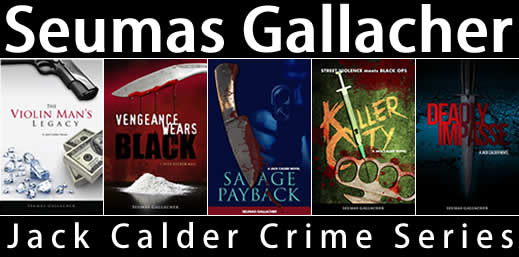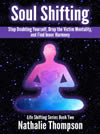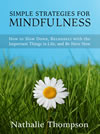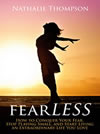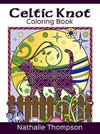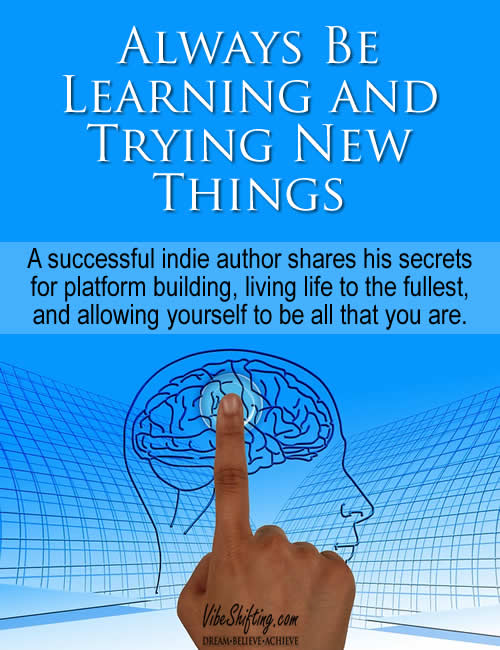 In today’s episode, part two of my interview with author Seumas Gallacher, we’re talking about the importance of always learning new things and not getting pigeonholed into being just one thing in life. Seumas also shares more of his inspiring stories, his tips on using social media to build your author platform and connect with others in the writing community, and some words of wisdom from comedian Billy Connolly.
In today’s episode, part two of my interview with author Seumas Gallacher, we’re talking about the importance of always learning new things and not getting pigeonholed into being just one thing in life. Seumas also shares more of his inspiring stories, his tips on using social media to build your author platform and connect with others in the writing community, and some words of wisdom from comedian Billy Connolly.
This Expert Series Guest Interview Has Two Parts:
1810 Savour Every Single Day
1811 Always Be Learning and Trying New Things
[powerpress]
If you missed last week’s episode, part one of my interview with Seumas, we talked about how his 50 year career in international banking helped shape his work as a successful author, and his views on the importance of gratitude and living each day as it happens. You can catch that episode right here.
Transcript: Always Be Learning and Trying New Things
Nathalie: I want to ask you some more about your writing career, if that’s OK?
Seumas: Of course.
Nathalie: You are a self-published author. You publish regularly, almost daily to your blog. You’re very active on social media channels. You have over 35000 direct social media contacts in the writing field. Besides your thriller novels, you’ve also written a nonfiction book on using social media for authors. And yet you call yourself, and I’m just repeating your own words here, these are not my words, you call yourself “the oldest computer Jurassic on the planet”.
So may I ask how old you are, or if you’re going to be cagey about that, how old you were when you dived into this whole online computer based world of independent publishing?
Seumas: As of today, with a mental age of 12, I have a physical age of seven-zero. I’m seventy.
Nathalie: Seventy!
Author @seumasgallacher shares his thoughts on platform-building, living life to the fullest, and allowing yourself to be all that you are! #podcast #authorpreneur Click To TweetBilly Connolly on Acting Your Age
Seumas: But I think… I don’t think like a 70 year old and I don’t look or feel like a 70 year old I used to look at when I was a kid, saying “my goodness they’re old people”. I don’t think that way, I don’t behave that way.
As Billy Connolly who’s my comedic God would say: “Act your age? How do I know how? I’ve never been this age so how do I know? I can’t act this age. I just act like what I am.” I’m [unable to transcribe] being alive. I enjoy having fun with people. I enjoy communication with people like yourself who get it. And those that don’t, hey, that’s their loss.
The Business of Being an Author
Nathalie: I love it. But along with this whole writing thing being something that’s happened after one finished career, and one you are still running and three previous retirements. I mean, this is all something that you had to learn. I mean, if you’re 70 now…I remember before computers so… and I’m 42, so…
Seumas: Yeah, yeah.
Nathalie: So it’s… this is a whole new area. But you have gotten so good at this. You’ve written a book to help other authors with it and you have built up, as we were talking earlier, this concept of writing, authorship, as a business.
So when you first got into this area, and again your background sort of helping you with this, you sort of saw that writing was a business based thing. And you just kind of accepted that.
Diving into Something New
Nathalie: I think a lot of authors struggle with that and they have a hard time dealing with it and they just… they want to write the books. They don’t want to have to deal with marketing or anything like, any of this “platform building” as they call it.
But you just dove right in there. I remember when I first came across you, it was several years ago now, I can’t even remember where… I think it was through another writer friend, and I just remember being blown away. I’m like this guy, who’s got to be in his 60s, at the time, and I was thinking he has such a grasp on this, he knows way more about this stuff than I do!
So, tell me how that was because a lot of people who are, you know in their 60s, who are 70, it’s… Having to even think about doing that kind of stuff and learning all this stuff, it’s overwhelming. So how did you deal with that? Was there any sort of sense of overwhelm or panic at this, or was it just…?
Social Media and Platform-Building
Seumas: No. No, no. And I’ll confess right up I stole the idea of the business of writing from a terrific author called Rachel Abbott. Rachel, many years ago, and her husband had an I.T. business in London. They sold that to get out of the rat race and went to live on a farm in Italy where she started to write her first crime novel. And it was a terrific novel, I read it.
Then I started reading her blog. And she was the one that said she now realized she was now in the business of writing. And in a business you have things… Like any normal business, you would you would budget your time, you would budget your finances, you’d find out your pricing mechanisms, your distribution channels, your competition, etc. etc.
And that’s the business. And social network was a way to get yourself into building that platform. No use getting some product and then throwing it into the market. You’ve got to know where it’s going.
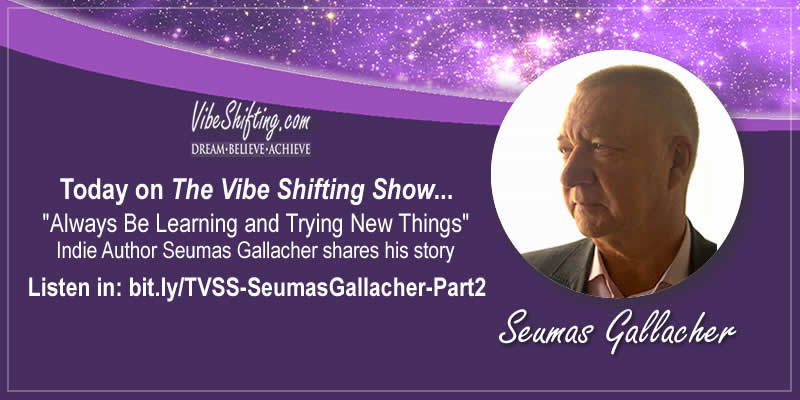
Writers as a Business Community
Seumas: So I then started to learn how to use Twitter, Facebook and so on, by focusing on the specific people in the business of writing: readers, writers, editors, and so on. And so that’s the community I speak with. And I treat every single one of these people as a business relationship.
And many of them, like as a real non-Web-type relationships, are friends as well now. I have friends all over the world. In fact, when I put on the Facebook something with my ailment here last week, I was blown away with the responses I was getting. The empathy was amazing. And that that’s how it’s done.
Every Piece of the Social Media “Author Platform” is Different
And the other thing is because I’m a Jurassic, I had to learn from scratch each one of these things. So I didn’t take it for granted. I learned each piece of it. I learned that they’re all different. Twitter is different in its way from Facebook and the way that you can build it up and what you cannot do.
And I try to portray myself on my blog, by the way, my blog is my silly face and so on. That’s my “brand”. I’ve learned about a brand. So that’s my brand. My novels contain my “voice” The author’s voice. You know. You understand what I’m saying with that stuff. So these two are different.
But I link my blog pieces to everything on my social networks. So it’s going out, notionally, to at least 35000 pairs of eyes and then, of course, it gets re-tweeted and blogged on and so on.
Start With One and Give it Time to Grow
Nathalie: And did you decide… did you sort of pick one at a time to learn, or did you just sort of pick a handful and dive in and work on all of them?
Seumas: I started one at a time because this has been going on now for nearly 10 years. So, obviously, I didn’t have 35000 on day two. But it started off that way and it just grew and grew and grew. And I nurtured it.
Nathalie: What’s your favorite social network?
Seumas: My favorite at the moment is Facebook because I can get a lot of laughs on there. Again, it comes back to fun. It’s got to be fun or I don’t do it.
Nathalie: See, I love that philosophy, too!
Seumas: Life’s too short not to be doing good stuff.
Seumas’ Upcoming Book Projects
Nathalie: That’s true. When did the… when did you publish your first novel, first of all?
Seumas: Oh, about ten years ago, I think. Nine or ten years ago. The Violin Man’s Legacy.
Nathalie: Ten years ago? And there are five in that series, as of today, right?
Seumas: That’s right. And the sixth one I’m writing now.
Nathalie: Oh, and you’re writing the next one? That’s exciting! So when did the…
Seumas: I’m also ghostwriting three autobiographies.
Nathalie: Oh that’s fun. You’re a busy, busy guy!
Seumas: It’s great fun. Everybody’s got a story. As they say in Hollywood, “Everybody’s got a story!”
Tips for becoming all you can be: always be learning and trying new things. #mindset #successtips Click To TweetThe Seeds of the Jack Calder Crime Series
Nathalie: When did the first seeds of that first novel, The Violin Man’s Legacy, when did they start forming? Were you still working your finance job at the time, or did it come later, that you just sort of decided “I want to be a writer”?
Seumas: No, I was still working in Abu Dhabi. I was the head of an investment bank in Abu Dhabi, and I went walking each night for ten nights, after having decided it was just time to write that book we all have in us. I wanted to see if I could do it.
So I went walking ten nights in a row just trying to formulate a scene or a scenario, themes, threads, etc. And I got an ending first. And from there it started, and of course, the route to the ending changed as I went through, but it essentially stayed the same ending.
And once I finished that one, it was just as biscuits are biscuits, I carried onto the second one and it took off from there. And, happily, people seem to like my stuff.
Nathalie: They do. You have many, many, many excellent reviews on Amazon.
Seumas: I’ve got over 500 reviews right now.
Not Sticking to One Thing is Good Thing
Nathalie: Did you always want to be a writer? Is this something you sort of toyed with since childhood but put away to do something more “sensible”, as so many people do? Or is it just something that developed over time?
Seumas: Well, at various times of my life I wanted to be different things. And I suppose that’s good as well, that you don’t stick to one thing all the time.
When I was a young man I used to sing in a band. We used to call them “beat groups” back then, a hundred years ago. And I wanted to be a singer. Then I wanted to be a drummer. Then I want to be this, then I wanted to be that. And then eventually I joined banking because I had to go out and work.
And it just took off from there. So whatever came out… and I wanted to be a footballer! I was a professional footballer at the age of 14. I’ve done a lot of things. I should be, like, 250 years old now.
Nathalie: That’s incredible. I love meeting people who have these really varied backgrounds because you’re always so fascinating. You’ve done so many things, you have so many different ways of looking at the world that are all sort of affected by all the things that you’ve done, so it’s a very unique perspective on life.
The Story of the Welsh Carpenter
Seumas: Let me tell you one of my favorite little stories about that. Supposedly a true story about a village, some time ago in a small village in Wales in the UK.
There was an old guy had worked in the village for 50, 60 years. And he kept to himself. A bachelor. He was a carpenter. And he did all his work around the village, and so on. But nobody ever visited his place until he died and they came to clear out the cottage.
Pretty much like your dad’s dumpster, I suppose. And when they came in they found this big chest. They opened it up and it was full of papers. He had been writing most of his life. Poetry. And the poetry was amazing.
So they started to wonder: was this a carpenter who happened to be a poet, or was he a poet who happened to be a carpenter? You see what I mean? We are many things. We can wear many hats.
What’s to stop… Like for example, going back to politics. Who was the lady? Condoleezza Rice. Yeah? Politician. She was a concert pianist! For example.
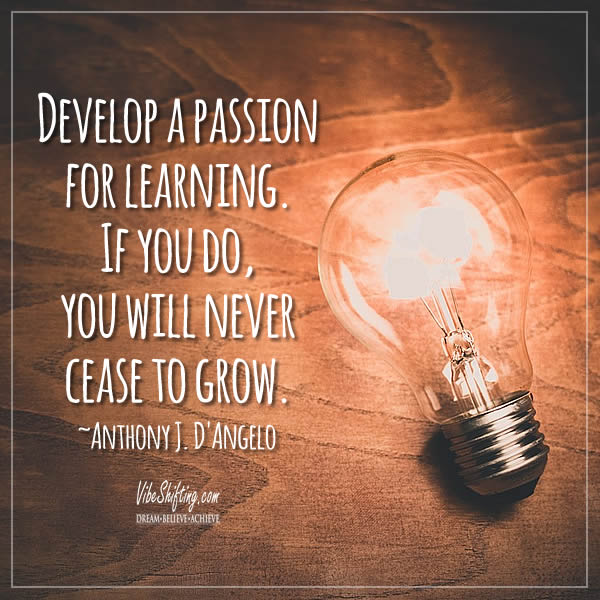
“Why Be Pigeonholed?”
Nathalie: I think that’s another thing that I think people struggle with sometimes is… I think we’re taught that we have to pick one thing and settle into that.
Seumas: Yeah.
Nathalie: And it’s sad, really, because as you said, we… I think we’re just… I think we’re meant to wear many different hats and to be able to play with all those different aspects of what we can do and who we could be.
Seumas: I agree. I agree entirely. Why be pigeonholed? If you can be funny with somebody one day and then you can be a singer the next and you want to play football. The thing is, if you enjoy doing these things and you want to excel at them. That’s something else, your own personal drive to be well, to do well at something usually dictates what you do. Most people don’t get indulged in things they’re not good at, right?
Nathalie: Yeah.
Harvard Business School and Doing Something Different
Seumas: But these are things you can cultivate. For example, I went to… I’ll drop names here… I went to the Harvard Business School about 35 years ago, in the advanced management program.
And there they taught us that… I was the second youngest in the class at the age of 38, that gives you an idea of the gravitas that was in the school there… And they taught us you should go away and try to do something different with your life each year to balance out the intensity of your work.
I thought that’s a great idea. So at the age of nearly 40, I went back to Hong Kong where I was living then. I had decided after all that time being scared of water, I would learn to swim. And I got a swimming teacher and that summer was the best summer of my life.
Always Be Learning
So every year I try to find something new to develop into and it’s been languages, it’s been musical instruments, writing books, doing poetry books, all this kind of stuff. To keep the brain alive. I still have two things to do. I still have two outstanding that I haven’t done yet, which I would love to do.
I have never in my life, apart from the stuff that goes on your mobile phone, I’ve never owned a camera. So what I’d like to study next is black and white photography. That’s one. The second one, I’m ever so jealous of people who can just sit down and play a piano. With all the instruments I’ve tackled, I’ve never had a go at the piano. I’d love to be able to play piano properly.
Nathalie: That’s one of the things that I would love to do, too, is to be able to play piano. I’ve always been so impressed with people who can. I remember taking piano lessons when I was a child, though, and absolutely hating it.
Seumas: Oh dear.
Advice for Aspiring Authors
Nathalie: So I’m going to ask you one more writing question, if that’s OK?
Seumas: Go on. Go ahead.
Nathalie: So, indie writers, as a general rule, I mean there’s always exceptions to this, but indie writers, I’ve found tend to be very good about sharing advice and experience and helping each other out.
Seumas: Definitely.
Nathalie: And you, in particular, I’ve noticed are exceptionally approachable in terms of this kind of thing.
So I wanted to ask you what would you tell people who are considering writing as a possible post-retirement path?
Write for Enjoyment, Then Work on Craft
Seumas: I’d say go for it. Go for it a million percent. But enjoy it. Enjoy what you write and write for yourself, first of all.
Then if have you have the time, indulge in things like learning what makes the difference between good writing and not so good writing. For example, I use a very simple piece of software to edit my work. And you learn things from that about how to use conjunctions properly, how not to use adverbs too much.
For example you see people say: “He walked slowly.” That’s lazy. You say “He ambled.” Much better word. And so on, and so on. And it teaches you how to do active writing rather than passive writing. So you learn your craft like you would anything else. And that then puts you ahead of a lot of people in the game. Not that you want to be competing, because for me, I don’t compete against other authors. I compete against the noise in the marketplace.
‘Enjoy what you write and write for yourself, first of all.’ Awesome #writing wisdom and other life lessons from author @seumasgallacher in this #podcast. Click To TweetWrite Until You’re Happy With It, Then Move On
Nathalie: I’m going to quote you here…
Seumas: Me?
Nathalie: …because it is quite apt to what you just said. But I found a quote from you that you mentioned elsewhere, and you said: “For my own work, I strive to sculpt my writing to the best of my ability. But only to the point where I am pleased with it myself. Not overly concerned about how other people regard it. If we try to please all of the people all of the time, we know where that leads us.”
Seumas: Absolutely correct. And I say that to many other people. When it’s done, leave it done. It’s like the salesman… don’t oversell. But you will know when you are pleased with what you’ve done. It’s as simple as that. And then you go on the next one.
The Writing “Addiction”
Nathalie: And then you go on to the next one. Yeah, that’s the other thing. Once you start writing…
Seumas: Oh, I know! It’s addictive. It’s a fabulous addiction to have. It really is.
Nathalie: It is. And it’s… I always laugh when people ask where you get your ideas. Once you’ve written that first one… the first one is the hardest because it’s just getting over that hurdle to actually start writing and just get it done.
But once you’ve got that first one done, the ideas just sort of start cramming themselves into your head and chasing themselves around in your mind trying to demand who is the next one to be written, so…
Writer’s Block and Billy Connolly
Seumas: I do a blog frequently. I used to do it almost daily. Of late, I’ve only been doing it about once a week. But what I do there, I just sit down and I’ve got no topic in mind. I just think “What’ll I write about today?”
And if I look around my desk, you know, I could say “It’s going to be potato crisps, sticking tape, and handkerchiefs.” And I just do something and I try and make it funny. Relate it back to something I’ve experienced or I’ve seen other people do that’s funny.
Seumas: Again coming back to Billy Connolly. Billy Connolly as an observer of human nature. Human beings are the funniest animals on the planet and they don’t know it.
So watch yourself first in the mirror and then watch other people, and you see how funny it is. And that’s what keeps you alive.
So if you get writer’s block, which I have never suffered from, what you do is you start. You write a word like “the” and then see where that takes you.
Connecting with Other Writers Online
Nathalie: So writing tips for Seamus Gallagher. Excellent way to… These are actually fabulous writing exercises. I know there are a lot of people… there’s tons of those online now, and there’s a lot of writing groups on Twitter. One of your social media networks where people can find and connect with other indie writers.
Seumas: Yeah. Facebook also has them.
Nathalie: Yeah. There are tons of groups out there. There’s hashtags on Twitter, there are Facebook groups. You can search for groups on Facebook to connect with other writers, if that’s something that you are considering.
And I just want to say thank you again for being on the show today, Seumas. This has been wonderful. I’ve enjoyed so much talking with you!
Seumas: My great pleasure, Nathalie. And I hope we can do it again sometime soon. I really enjoyed it. Thank you.
If you loved this podcast episode, be sure to check out part one of my interview with Seumas, too!
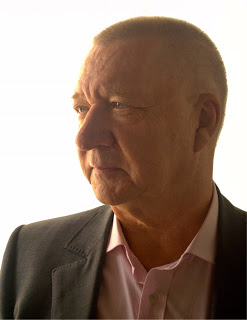
About Today’s Guest Expert:
Indie Author Seumas Gallacher escaped from the world of finance after retiring from a career that spanned five decades and three continents. Since then he’s published five books in his Jack Calder crime thriller series, and together they’ve racked up over a hundred thousand downloads on Amazon Kindle. Connect with Seumas on his website or on Facebook.

